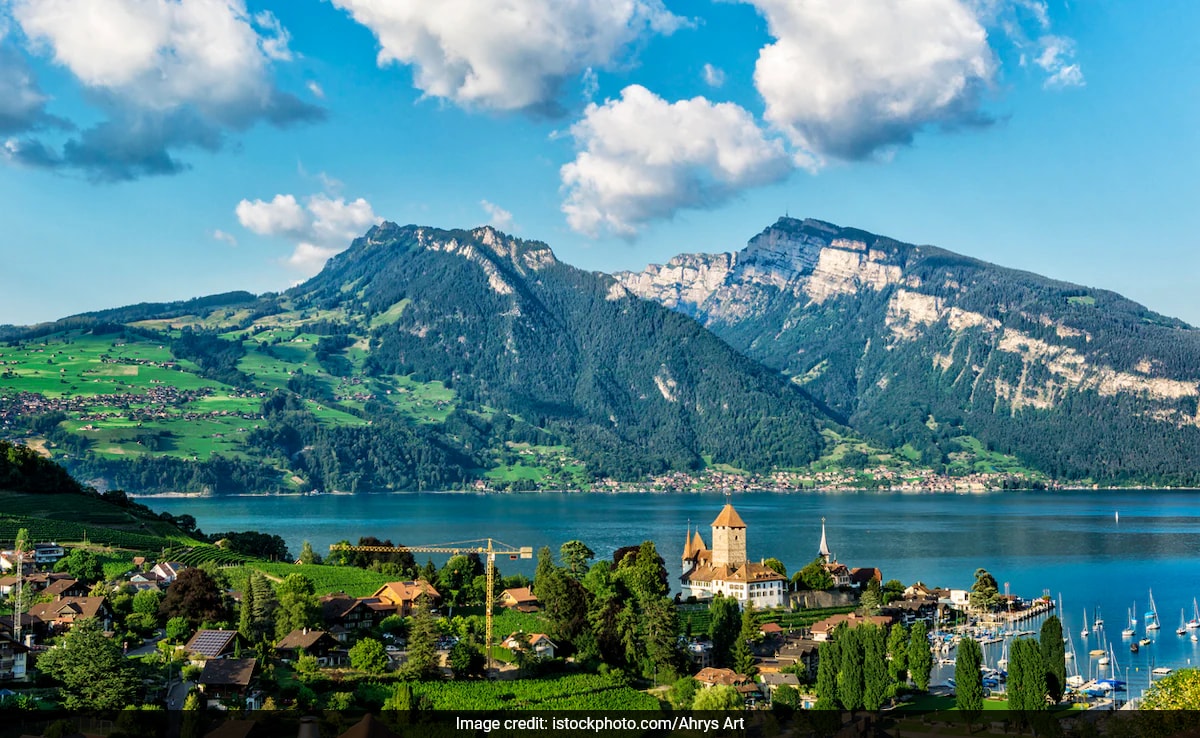As a year of travel that was marked largely by overtourism protests in Barcelona, Oaxaca and Venice draws to a close, the appeal of offbeat vacations continues to grow.
To wit, consider these spots you’ve likely never heard of: secluded Graciosa Island on the Azores, the remote fishing village Roches Noires in northeastern Mauritius, or mountainous Wukirsari, Indonesia, 270 miles east of Jakarta. They’re among the 55 small, rural escapes around the world that earned a spot in the 2024 edition of UN Tourism’s “Best Tourism Villages.” The list of winning destinations, previewed exclusively by Bloomberg News, was released on Nov. 14 at the organization’s Executive Council meeting in Cartagena, Colombia.
The initiative, started in 2021, aims to raise awareness of lesser-known places worth visiting—and also reward responsible tourism management. Put simply, these destinations are using visitation funds in a way that boosts their cultural practices, preserves biodiversity and improves quality of life for locals. Each village also counts fewer than 15,000 inhabitants and maintains traditional activities such as agriculture and fishing.
“The Best Tourism Villages initiative not only recognizes the remarkable achievements of these villages but also highlights the transformative power of tourism,” says UN Tourism Secretary-General Zurab Pololikashvili.
Among this year’s worthy escapes are rural villages in Panama and Guatemala, two countries appearing on the list for the first time. Panama’s historic northern port of Portobelo, for example, draws smaller crowds despite its tranquil Caribbean beaches and significant colonial past. But it also stood out because tourism there helps fund cultural heritage preservation activities for youth through the Bahía de Portobelo Foundation, as well as coral reef restoration projects.
Appearing on this coveted list can lead to increased visitation from higher-spending travelers, too. For instance, in Aragon, Spain, the village of Alquezar’s mountain trekking, canyoning and hiking used to draw mostly visitors from France and Spain, but since its win in 2022, international visitors from Japan and China have vacationed there, according to Alquezar Mayor Ana Blasco Castillo. Sandra Carvao, who helps develop rural tourism as a director at UN Tourism, sees this as one of the major pluses of the Best Tourism Villages initiative, in addition to diverting travelers from major hot spots. “It’s really to make sure that the sector can benefit places which wouldn’t necessarily be top of your mind,” she says.
This year’s winners were selected from 260 nominations that UN Tourism received from more than 60 member countries. We highlighted five that are easily accessible.
Splugen, Switzerland
Splugen, in the Swiss Alps near the Italian border, is smaller in size as a ski getaway than, say, the busier and glitzy St. Moritz just an hour-and-a-half scenic drive east. But that’s exactly the draw: It’s a quieter winter sports vacation destination that doubles as an under-the-radar spot in the spring and summer, with access to crystal clear lakes and Beverin Regional Nature Park. Splügen became part of this protected area in 2020, joining more than 10 communities living here who’ve committed to play a part in preserving it. Next year boutique property Speluca Brewery Hotel is set to open; its design makes use of formerly abandoned spaces on the village’s outskirts, including an old barn and a former hotel from the 1960s, plus new structures that will reflect the village’s traditional timber aesthetic. Splügen’s communities want to attract more year-round visitors as well, whom they expect once the future Rheinwald Resort AG project is completed, featuring a mix of rooms and a campsite for long-term stays.
San Rafael de la Laguna, Ecuador
San Rafael de la Laguna serves as a reminder of Ecuador’s outsize natural riches—sitting in the foothills of the Andes, just under a two-hour drive north of Quito. It’s close to Imbakucha, or the lake of the gods, also commonly known as Lago San Pablo. You can hop on guided tours to spot herons and ducks from traditional boats made from totora reeds, a local aquatic plant growing abundantly in the area. Cycling enthusiasts will find routes that traverse the Otavalo Valley, and the village also celebrates vibrant Indigenous rooted festivals. The Pawkar Raymi marks the start of the agricultural season in early March, in alignment with the spring equinox, and the Inti Raymi celebrates the winter solstice in the Southern Hemisphere. Expect plenty of community events for both, including traditional Andean music and dance. If you’re more into hands-on experiences, craft workshops teach you to make baskets, trays and hats out of totora reeds.
Gharb Suhayl, Egypt
If you’re set on visiting the Grand Egyptian Museum in 2025, it would be worth including a stop in Aswan, south of Giza. From there, hop on a 30-minute boat ride south to reach the peaceful, ancient Nubian village of Gharb Suhayl, set on the banks of the Nile. Beyond its brightly painted homes in blue, yellow and ocher, you’ll find striking art murals, said to give the area the feel of a living outdoor museum. You’re likely to be invited into a Nubian family’s home to learn about the way of life, and you could also spend time shopping in souks for crafts, jewelry and spices. A handful of luxury tour operators, such as Black Tomato, offer stops in Aswan, continuing down the Nile to Abu Simbel.
Pissouri, Cyprus
On Cyprus’ rugged southwestern coast, Pissouri offers a quieter alternative to resort town Limassol, which lies just a 30-minute drive east. You’ll have your pick of outdoor activities in Pissouri, including the Cape Astrot hiking trail, tucked along gigantic rock formations, for jaw-dropping vistas over a turquoise bay and its pebble sand beach. The agricultural village’s cobblestoned square is lined with local tavernas where you can dine on Cypriot meze—small plates of local cheeses, olives, seafood and grilled meats, as well as dips. For a deeper dive into Pissouri’s heritage, get a guided tour at G Theophamous Winery on the history of Pissouri’s Sultanina grape and winemaking traditions. To draw more visitors in the future, this small agricultural village is working on an accessible hiking trail for disabled travelers, as well as a House of Halloumi Museum— named after Cyprus’ signature cheese—that will showcase this region’s dairy products.
Uaxactún, Guatemala
Most people head to Tikal National Park and unknowingly bypass Uaxactún, an ancient Mayan historical site located just a 30-minute drive north. But it counts uncrowded forest trails where you can observe the area’s temples, including a ceremonial complex, stelae and an astronomy observatory that the Maya once used to mark celestial events. Uaxactún was at its peak from 600 A.D. to 900 A.D., when it was an important center for art and astronomy. In March the eponymous village celebrates the spring equinox festival through sacred ceremonies at the site that include chants, fires and drumming. Inquire about a craftmaking workshop with local women’s group Brisas de la Selva Maya, where you’ll learn to make necklaces and bracelets from forest-sourced elements such as seeds, mushrooms and flowers.
(This story has not been edited by NDTV staff and is auto-generated from a syndicated feed.)






